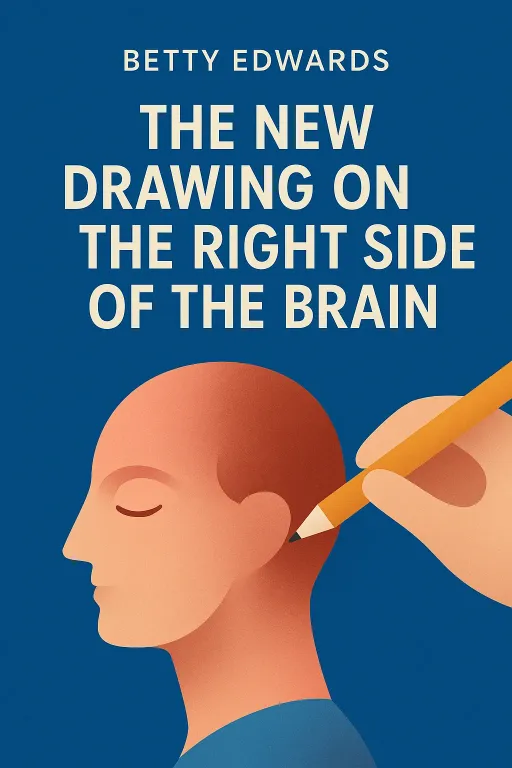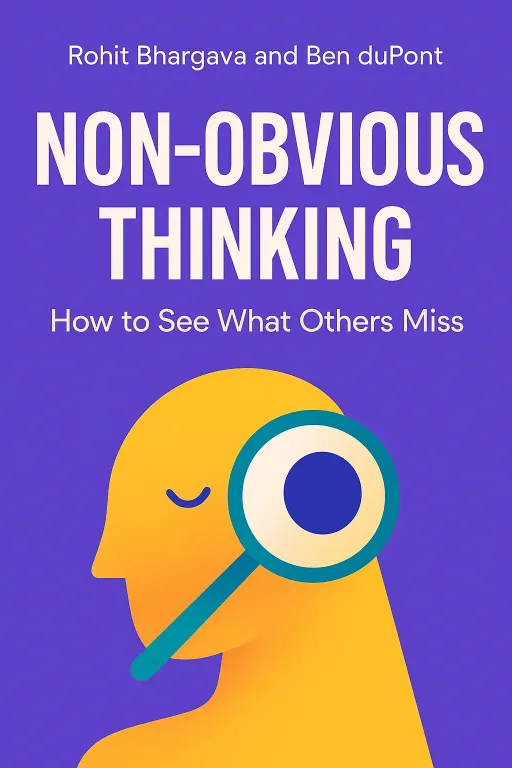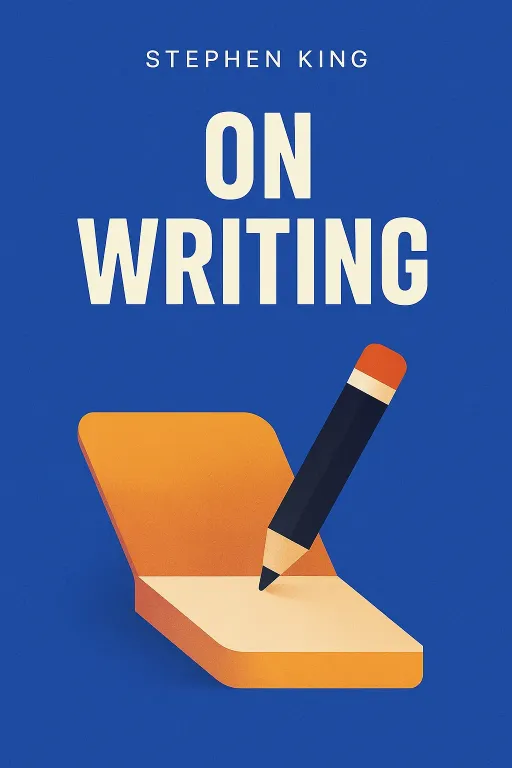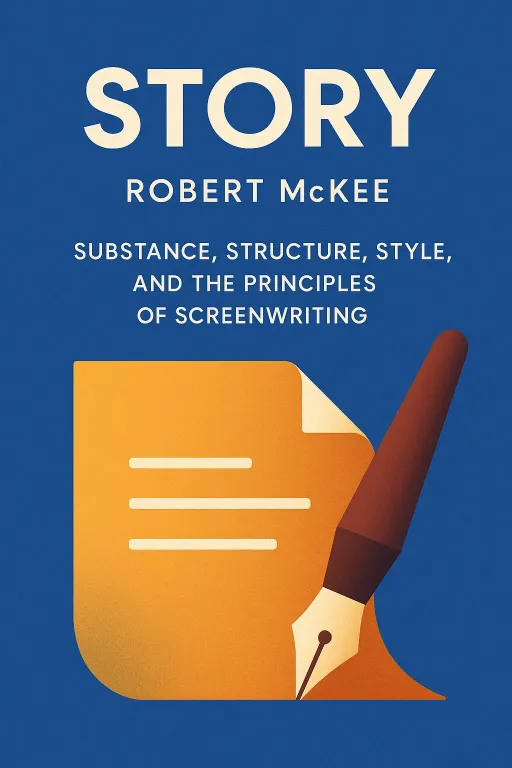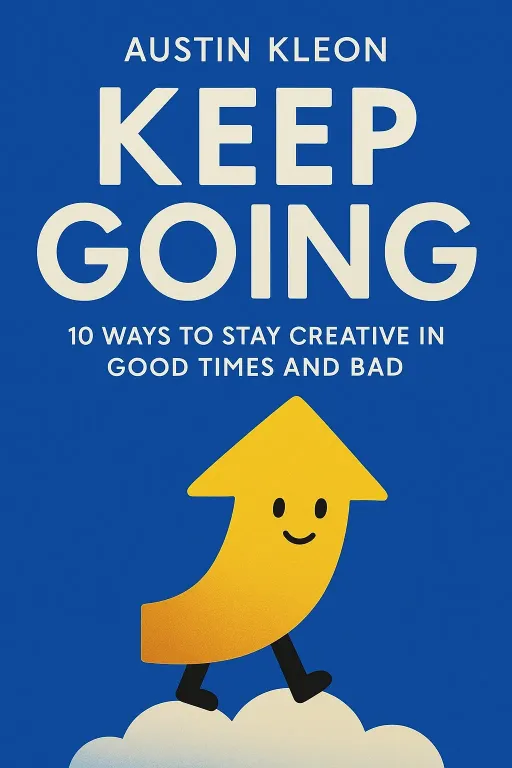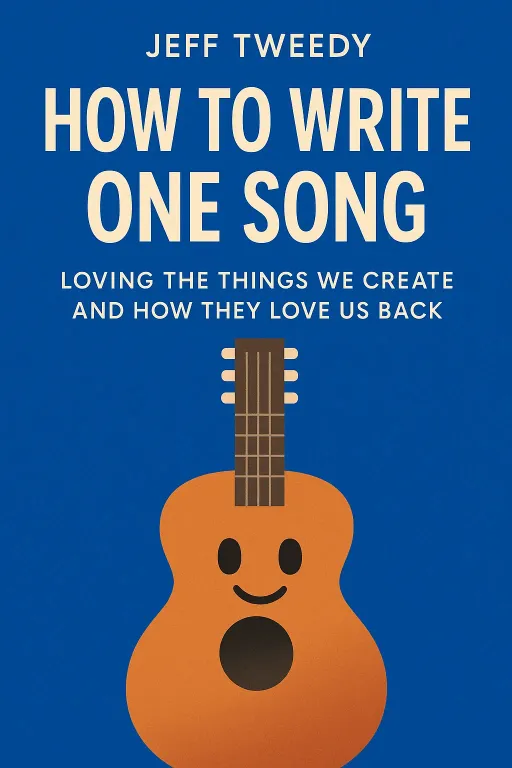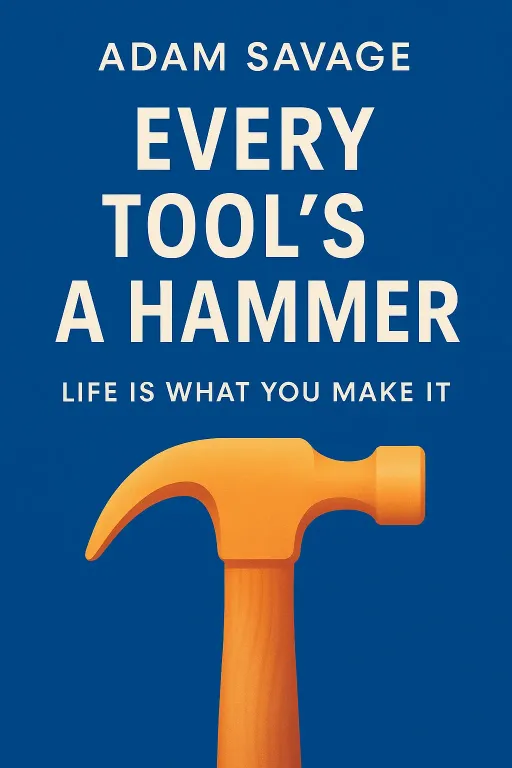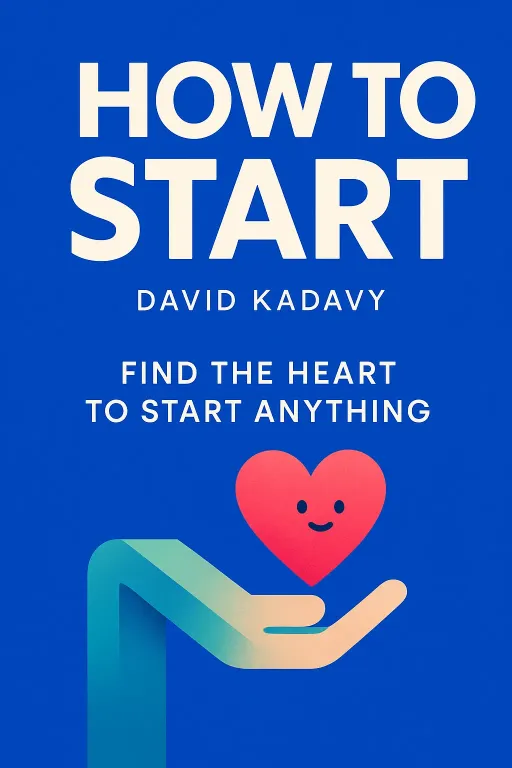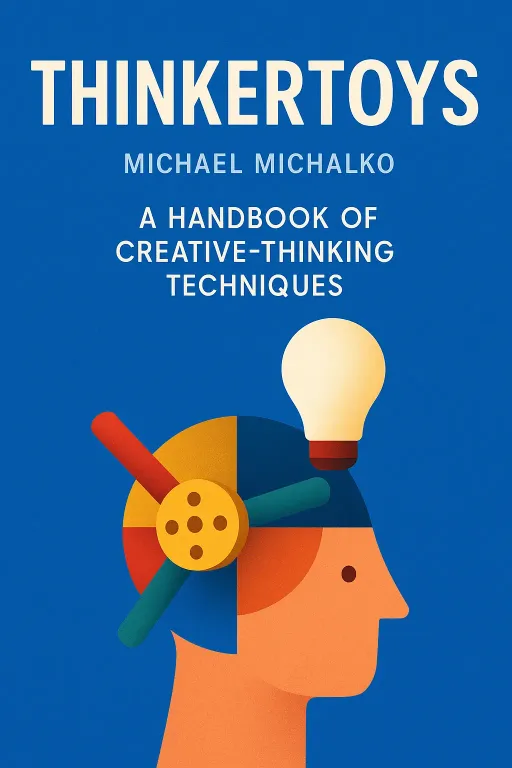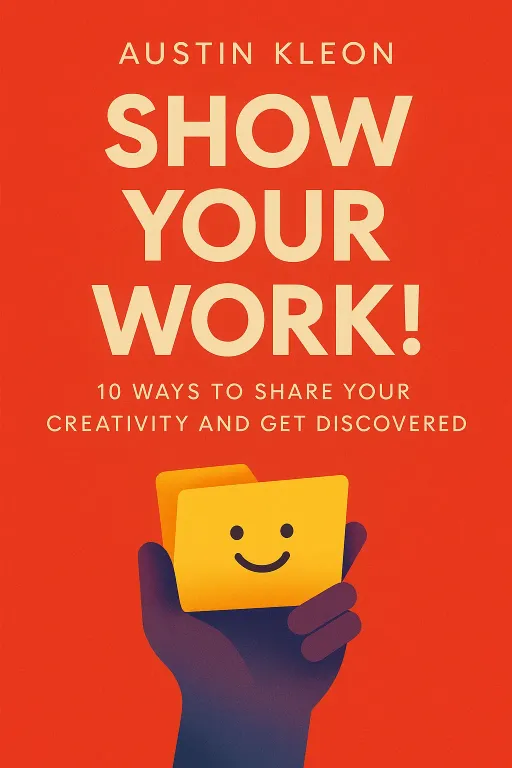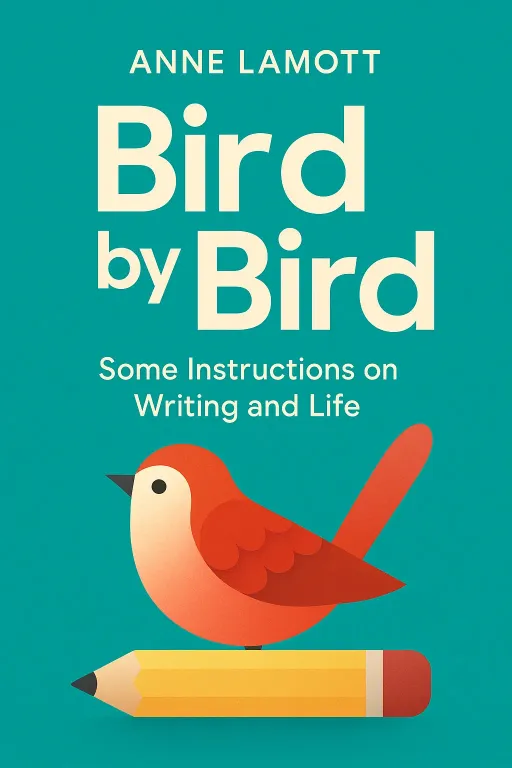
Bird by Bird: An Inside Job
12 minSome Instructions on Writing and Life
Golden Hook & Introduction
SECTION
Rachel: Alright Justine, I'm going to give you a book title, you tell me the genre and plot. Bird by Bird. Justine: Easy. It's a horror film. A sequel to Hitchcock's The Birds, but with a much smaller budget. They could only afford one bird, so it just attacks people one at a time, very, very slowly. Rachel: That is a terrifyingly patient horror movie. But you’re surprisingly close on the one-at-a-time part. It's actually one of the most beloved writing guides ever, Bird by Bird: Some Instructions on Writing and Life by Anne Lamott. Justine: Oh, I've definitely heard of this one. It's practically required reading in creative circles, right? It’s got this almost legendary status. Rachel: Exactly. And what makes it so special, and why it's endured for decades, is Lamott's background. She's not some academic in an ivory tower theorizing about prose. She's refreshingly, sometimes brutally, honest about her own life—her struggles with substance abuse, her faith, her family, and crippling self-doubt. Justine: Huh. So it’s less of a technical manual and more of a survival guide from someone who’s actually been in the trenches. Rachel: That’s the perfect way to put it. It’s why the book has been a lifeline for writers and creatives since it was published back in 1994. It tackles the real, messy, emotional core of what it means to create something.
The Inside Job: Why Publication Won't Save You
SECTION
Justine: Okay, so if it’s a survival guide, what’s the first rule of survival according to Lamott? Rachel: Well, this is where she immediately throws a curveball. She gives her writing students advice that I know most of them, and probably most of us, don't want to believe. She tells them, flat out: "You probably won't get published, and it won't solve your problems if you do." Justine: Hold on. She tells her paying students that their ultimate dream is probably not going to happen and, even if it does, it'll be meaningless? That sounds incredibly discouraging. Why would anyone keep writing after hearing that? Rachel: Because she’s trying to perform a kind of radical surgery on their motivation. She sees that so many aspiring writers are obsessed with the finish line—the book deal, the fame, the validation. They want to be published. But Lamott argues that if your driving force is that external reward, you're setting yourself up for misery. The real reward has to come from the act of writing itself. Justine: I get that in theory, but it feels a bit like telling a marathon runner that crossing the finish line doesn't matter, only the jogging part. The goal is what gets you through the pain. Rachel: But what if the goal is a mirage? Lamott learned this the hard way. She tells this absolutely gut-wrenching story about her first book. It was a memoir about her father, who was dying of brain cancer. She poured everything into it. She was convinced its publication would be this glorious, life-affirming moment. Justine: I can only imagine the anticipation. Your first book, something so personal. You’d be picturing rave reviews, people being moved to tears… Rachel: Exactly. She was waiting for the praise to roll in. Instead, she got the first two trade reviews, and they were just savage. They tore the book apart. She was so devastated she ended up getting drunk and telling the story of her humiliation to strangers at a party. It was the complete opposite of the triumphant moment she had envisioned. Justine: Wow. That’s brutal. It’s like your dream coming true and turning into a nightmare in the same instant. Rachel: And that experience became a cornerstone of her philosophy. She realized that publication, that external validation, is not a magic pill for happiness or self-worth. It can’t fix you. She has this incredible line in the book that I think about all the time: "I remember that if I wasn't enough before being asked to participate in this prestigious event, then participating wasn't going to make me enough. Being enough was going to have to be an inside job." Justine: 'An inside job.' That really lands. It’s so true for so many things beyond writing. We think the promotion, the relationship, the achievement will be the thing that finally makes us feel whole, but it never is. The goalposts just move. Rachel: They always move. And Lamott’s point is that the real, sustainable joy comes from the process. She says, "That thing you had to force yourself to do—the actual act of writing—turns out to be the best part." It’s about the discovery, the connection you feel when you're creating, the small moments of grace you find on the page. That’s the stuff you can control. The reviews, the sales, the fame? That’s all out of your hands. Justine: It’s a powerful reframe. It shifts the locus of control from the unpredictable outside world to your own internal experience. But it’s a tough pill to swallow, especially today with social media, where everything is about external validation—likes, shares, follower counts. It feels like we’re more wired than ever to seek that outside approval. Rachel: Absolutely. Which is why this advice from the 90s feels more urgent than ever. She’s basically saying you have to cultivate a sense of self-worth that is completely independent of the reception. The work is the reward. Everything else is just weather.
Bird by Bird: Taming the Chaos of Creation
SECTION
Justine: Okay, so if we accept that it’s an 'inside job,' that still leaves the job itself. And honestly, the job is terrifying. Staring at a blank page feels like standing at the edge of a cliff. How do you actually do the work without letting the sheer scale of it paralyze you? Rachel: And that brings us to the book's most famous concept, the one that gives it its title. It comes from another story from her childhood. Her older brother, who was ten at the time, had a big report on birds due for school. He’d had three months to do it. Justine: Let me guess. He waited until the night before it was due. Rachel: Of course. He was at the kitchen table, on the verge of tears, completely overwhelmed by the mountain of work ahead. He was surrounded by books, blank paper, and despair. His father, who was also a writer, came over, put an arm around his shoulder, and said, "Bird by bird, buddy. Just take it bird by bird." Justine: Oh, I love that. It’s so simple but so profound. Don't look at the whole flock. Just look at the one bird right in front of you. Rachel: Precisely. It's the ultimate mantra for breaking down an overwhelming task into a manageable one. You don't sit down to write a novel. You sit down to write one paragraph. You focus on one tiny, achievable piece. And that single idea is the antidote to so many of the demons that plague writers. Justine: What kind of demons are we talking about? I have a few I could nominate. Rachel: Well, the biggest one is perfectionism. Lamott calls perfectionism "the voice of the oppressor, the enemy of the people." She argues it will keep you from ever starting because the fear of not doing it perfectly is just too great. Justine: That’s so true. It’s the belief that the first sentence has to be magnificent, which of course it never is, so you just end up staring at the cursor blinking for an hour. Rachel: To fight this, she offers what might be the most liberating advice in the entire book: give yourself permission to write a "shitty first draft." She insists that every good writer—every single one—writes terrible first drafts. The first draft is just for you. It's the "down draft," where you just get it all down on paper. The "up draft" is where you fix it, and the "dental draft" is where you check every tooth, every comma. Justine: "Shitty first drafts." That phrase alone is worth the price of the book. It’s like a get-out-of-jail-free card for your brain. It’s not supposed to be good yet! It’s supposed to be a mess. Rachel: It’s a complete paradigm shift. And it connects back to the "bird by bird" idea. Your first bird might be a really ugly, misshapen bird. That’s fine. Just get the bird on the page. You can make it pretty later. She compares it to watching a Polaroid develop. At first, it's a murky, indistinct smudge. You have to be patient and just stay with it, trusting that an image will eventually emerge. Justine: I feel like this applies to so much more than writing. Any big project, a new business, learning an instrument. The first version is always going to be clumsy and embarrassing. Rachel: Always. And the other demon this helps with is the inner critic. Lamott has this hilarious and painfully accurate name for the chorus of negative voices in our heads. She calls it "Radio Station KFKD." Justine: I’m not even going to ask what that stands for, because I think I know. My subscription to that station is lifelong. Rachel: It's the station that's constantly broadcasting self-doubt, anxiety, judgment, and a running to-do list of all the other things you should be doing instead of writing. It tells you you're a fraud, you have no talent, and that you should probably go tweeze your eyebrows or organize the spice rack right now. Justine: The accuracy is painful. That station is always on, and it’s always loud. So how do you turn it off? Rachel: Lamott says you can't really turn it off, but you can learn to turn the volume down. You notice it's on, you acknowledge it—"Ah, KFKD is broadcasting again"—and then you gently bring your focus back to the task at hand. Back to your one bird. The shitty first draft is a tool to do that, because it tells the inner critic, "Hey, I know this is bad. That's the point. Your services aren't needed right now." Justine: It’s a form of mindfulness, really. Acknowledging the distracting thoughts without judgment and returning your focus to the present task. It’s about taking the power away from that voice by refusing to engage with its ridiculous standards. Rachel: Exactly. It's all about creating a mental space where you are free to be messy, to explore, and to fail. Because it's only in that space that anything new or true can actually be born.
Synthesis & Takeaways
SECTION
Rachel: When you put it all together, you see how beautifully these two core ideas connect. The "inside job" philosophy gives you the right why for creating. It grounds you in a purpose that can't be shaken by external forces. Justine: And the "bird by bird" method gives you the practical how. It’s the toolkit for navigating the day-to-day reality of that creative work without letting overwhelm or perfectionism shut you down. Rachel: They are two sides of the same coin of creative survival. You need the resilient mindset, and you need the compassionate process. And what I love most about this book is that while it's framed as advice for writers, it's really a profound philosophy for life. Justine: Absolutely. We all have these huge, daunting "book projects" in our lives—a career change, raising a family, getting healthy. The temptation is always to get overwhelmed by the sheer size of it or to be paralyzed by the fear of not doing it perfectly. Rachel: And Lamott’s wisdom is the antidote. Find your intrinsic motivation—your "inside job"—and then just focus on the next small, imperfect step. Take it bird by bird. She has this one quote that sums it all up for me: "Hope begins in the dark, the stubborn hope that if you just show up and try to do the right thing, the dawn will come. You wait and watch and work: you don’t give up." Justine: That’s beautiful. It’s not about a flash of genius; it’s about patient, stubborn, hopeful work. I guess that leaves me with a question, for myself and for everyone listening: What's the 'bird report' in your life right now? What’s that one big, scary thing that feels too overwhelming to even start? Rachel: That’s the perfect question. And maybe the first step isn't to plan the whole thing, but just to write one "shitty first draft" of an email, or take one "bird by bird" step toward it today. We'd actually love to hear about it. Find us on our social channels and tell us about your creative hurdles or your own "shitty first draft" stories. It’s a struggle we all share. Justine: It truly is. This book feels like a warm, witty, and wise friend putting an arm around your shoulder and telling you it’s okay. You’ve got this. Just one bird at a time. Rachel: This is Aibrary, signing off.
